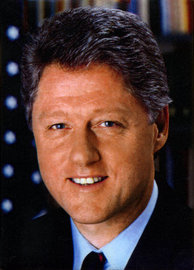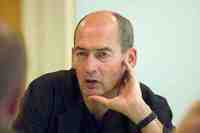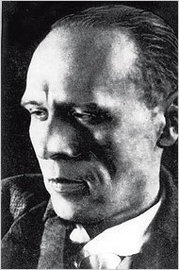Arnon Grunberg's Blog, page 477
June 7, 2012
Misjudgments

Drone
Scott Horton in Harper’s Magazine on Obama’s kill list:
“With the Times account, more important details about the Obama drone program have fallen into place. The disclosures will offer solace to Obama supporters who have qualms about the program, since the administration is shown scrutinizing individual targets and avoiding strikes that would affect innocent women and children. On the other hand, the drone operators continue to make lethal misjudgments, and the government’s case for secrecy with the program looks more dubious than ever.”
(Read the complete article here.)
Of course, Obama wanted us to know about his kill list. (Elections etcetera.)
Some people would argue that Bill Clinton just had a fuck list.
Masculinity boils down to killing or fucking I’m afraid.

June 6, 2012
Obedient

Dog
“You are servile as a dog,” my girlfriend said.
I couldn’t deny it.
The older I get the more I resemble a pet.
It comforts me that some people have a pet snake.

June 5, 2012
Characteristic

Profession
“’So what’s the profession of your main character?’ I asked a colleague. He said: ‘An architect.’ And another novelist is writing about an architect as well. Dutch literature is suddenly filled with architects,” a colleague said last night after the book launch of my new novel last night.
Apparently, the most identifying characteristic of characters in contemporary novels is their profession.

June 4, 2012
Hallowed ground

Sublime
And something more about identity politics – Patricia Cohen in today’s IHT about the 9/11 museum:
'It seemed self-evident at the time: A museum devoted to documenting the events of Sept. 11, 2001, would have to include photographs of the hijackers who turned four passenger jets into missiles. Then two and a half years ago, plans to use the pictures were made public.
‘New York City’s fire chief protested that such a display would “honor” the terrorists who destroyed the World Trade Center. A New York Post editorial called the idea “appalling.” Groups representing rescuers, survivors and victims’ families asked how anyone could even think of showing the faces of the men who killed their relatives, colleagues and friends.
The anger took some museum officials by surprise.
“You don’t create a museum about the Holocaust and not say that it was the Nazis who did it,” said Joseph Daniels, chief executive of the memorial and museum foundation.
Such are the exquisite sensitivities that surround every detail in the creation of the National September 11 Memorial Museum, which is being built on land that many revere as hallowed ground.’
It’s the horror that sanctifies the site. Not even colonel Kurtz though of this. But of course, this process of sanctification has been on display in at least some of the concentration camps in Europe as well. The horrors of the past remind us of the sublime, the horrors of the present are never sublime.
(Read Patricia Cohen’s article here.)

June 3, 2012
C

Soup
A friend invited me for dinner.
He said: “The soup is nothing special.”
The soup was delicious.
Then he said: “Half of the books here I haven’t read, so I decided to read them. I started with the ‘A’. Now I’m halfway the ‘C’.”
“How is the ‘C’?” I asked.
“Not bad at all,” he answered.

June 2, 2012
The big question

Electronics
“Does anybody here have electronics?” my godson asked after dinner.
He meant an iPhone, an iPad or any other device that could possibly entertain him.
The word “electronics” made me smile, but he sounded like a heavy smoker who desperately needed some nicotine.

June 1, 2012
Laughter

Performers
Today I thought of the Russian writer Daniil Kharms.
I came across his name in a Dutch newspaper.
My first unpublished stories were heavily influenced by Kharms.
I would say that to a certain degree I remained faithful to his worldview. Perhaps there are two sorts of people on this world: those who understand Kharms and those who don’t.
This is an essay by Kharms in English translation:
“On Laughter
Advice to humourous performers
I have noticed that it is very important to determine the point at which laughter can be induced. If you want the auditorium to laugh, come out on to the stage and stand there in silence until someone bursts out laughing. Then wait a little bit longer until someone else starts laughing, and in such a way that everyone can hear. However, this laughter must be genuine. When all this has taken place, then the point at which laughter can be induced has been reached. After this you may proceed to your programme of humour and, rest assured, success is guaranteed.
Where are several sorts of laughter.
There is the average sort of laughter, when the whole hall laughs, but not at full volume. There is the strong sort of laughter, when just one part of the hall or another laughs, but at full volume, and the other part of the hall remains silent as, in this case, the laughter doesn't get to it at all. The former sort of laughter requires vaudeville delivery from a vaudeville actor, but the latter sort is better. The morons don't have to laugh.
1933”
(Click here for more on Kharms.)
Morons don't have to laugh. Please, keep that in mind.

May 31, 2012
Field trip

Stories
My godson went on a field trip to Egmond aan Zee.
It was raining all afternoon. In the evening his mother and I picked him up, so he could say goodbye to his grandmother who is going back to Bolivia soon.
“How did you like it?” I asked.
“I had a ride in a hot air balloon,” he answered.
He’s making up stories all day long. It reminds me of my own youth, it worries me.

May 30, 2012
Circumstance

Fate
This article by Scott Sayare in the NY Times is worth reading: ‘It was James, a thickset American interrogator nicknamed “the Elephant,” who first told Lakhdar Boumediene that investigators were certain of his innocence, that two years of questioning had shown he was no terrorist, but that it did not matter, Mr. Boumediene says.
The interrogations would continue through what ended up being seven years, three months, three weeks and four days at the prison camp at Guantánamo Bay, Cuba.
An aid worker handling orphans in Sarajevo, Mr. Boumediene (pronounced boom-eh-DIEN) found himself swept up in the panic that followed Sept. 11, 2001. He likens himself to a caged cat, toyed with and tormented by fate and circumstance.
“I learned patience,” Mr. Boumediene, 46, said. He is a private man, trim and square-jawed and meticulously kempt, his eyes set in deep gray hollows. “There is no other choice but patience.”
The United States government has never acknowledged any error in detaining Mr. Boumediene, though a federal judge ordered his release, for lack of evidence, in 2008. The government did not appeal, a Defense Department spokesman noted, though he declined to answer further questions about Mr. Boumediene’s case. A State Department representative declined to discuss the case as well, except to point to a Justice Department statement announcing Mr. Boumediene’s transfer to France, in 2009.
More than a decade has passed since his arrest in Bosnia, since American operatives shackled his feet and hands, dropped a black bag over his head and flew him to Guantánamo. Since his release three years ago, Mr. Boumediene, an Algerian by birth, has lived anonymously in the south of France, quietly enraged but determined to start anew and to resist the pull of that anger.
He calls Guantánamo a “black hole.” Islam carried him through, he says. In truth, though, he still cannot escape it, and is still racked by questions. “I think back over everything in my life, all the stages, who my friends were, who I did this or that with, who I had a simple coffee with,” Mr. Boumediene said. “I do not know, even now, why I was at Guantánamo.”’
Tormented by fate and circumstance.
When the state decides that time has come to pulverize you it’s hard to escape its machineries.
(Read the complete article here.)

May 29, 2012
Together

Plans
“Let’s go to the Oktoberfest together,” I said to an editor in chief of a magazine I write for.
“Yes,” he answered. “Let’s do that.”

Arnon Grunberg's Blog
- Arnon Grunberg's profile
- 415 followers



